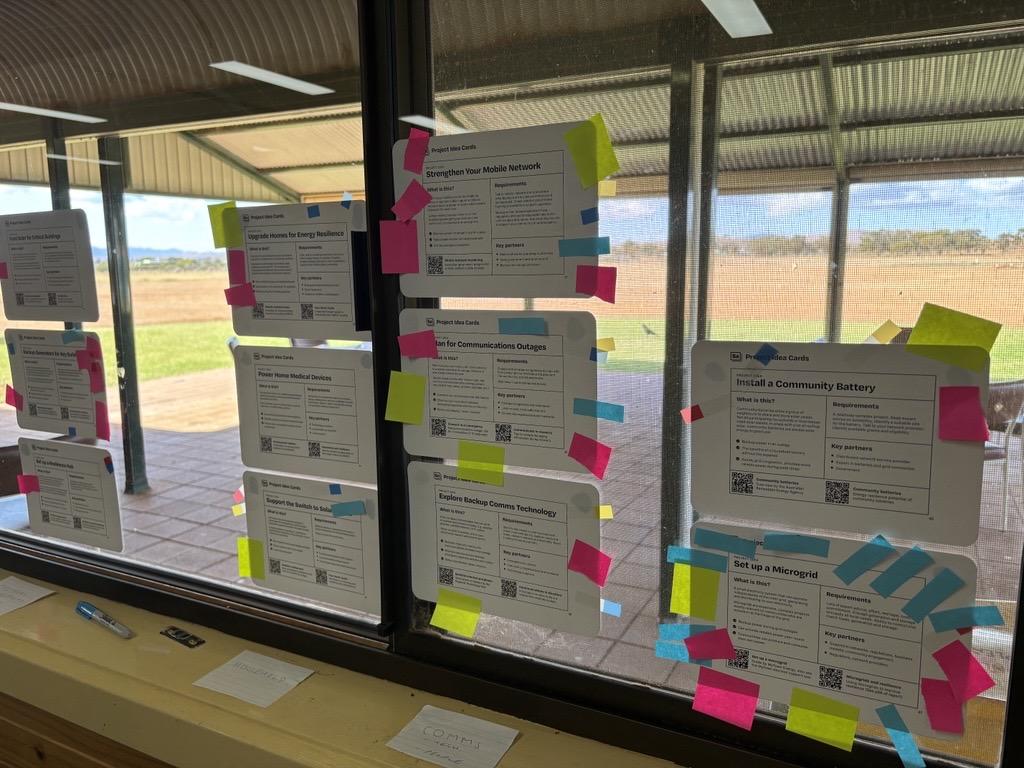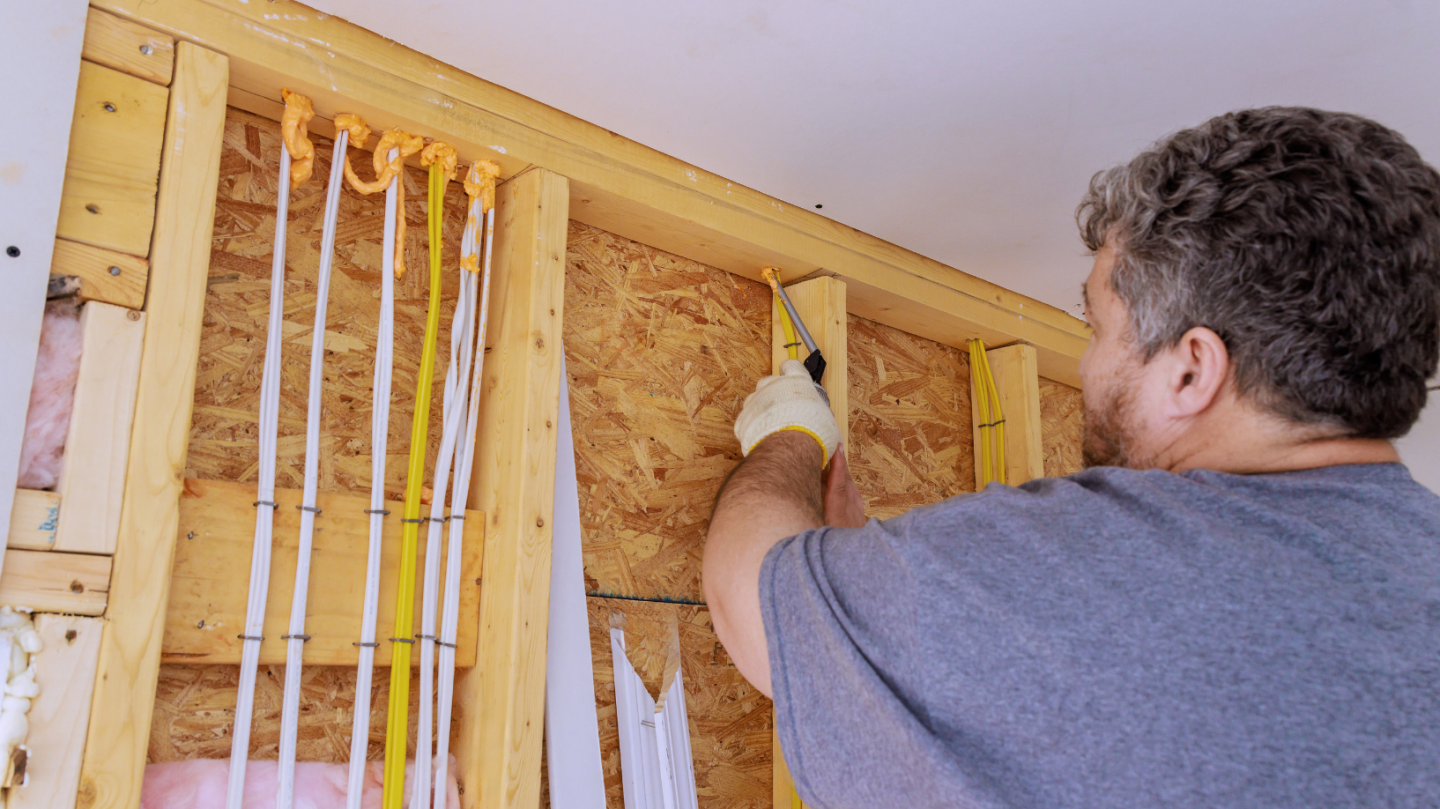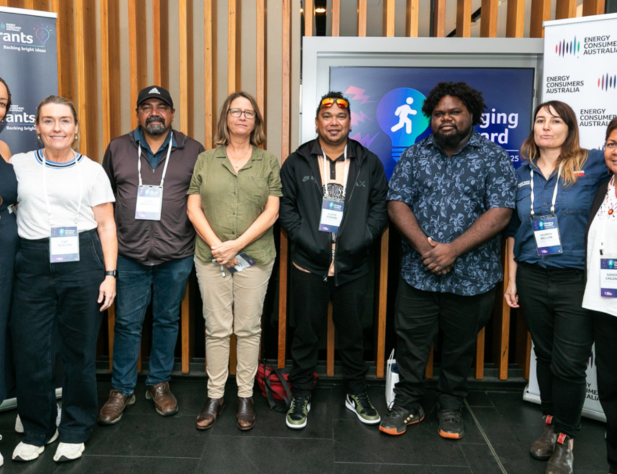Energy Consumers Australia has approved funding to eight new projects through its Grants Program. Together, these projects will help consumers and communities across Australia participate in the energy transition with confidence and control.
Each initiative addresses a key challenge facing households or small businesses, whether that is improving policy design and data access, or supporting renters, regional Australians and First Nations communities. These projects reflect our ongoing commitment to ensuring the energy transition occurs in a way that is fair, affordable and driven by consumer needs.
About the eight new grant projects
1. Australian energy performance policy scorecard
Recipient: Energy Efficiency Council
Funding Awarded: $319,230
Across Australia, governments are working to improve household and business energy efficiency, but policy progress is uneven and fragmented. While some states and territories have ambitious targets and strong regulations, others lag behind, leaving consumers exposed to higher energy costs and slower progress towards electrification. Without a consistent benchmark, it’s difficult for advocates and policymakers to keep track of what’s in place, assess whether these policies are effective, and understand where improvements and further advocacy efforts are needed.
This project will develop an independent national scorecard that reviews and ranks demand-side energy policies across states and territories. By shining a light on who is leading and who is falling behind, the scorecard will build public and political momentum for better policy on topics such as regulated minimum energy efficiency standards and financial incentives for electrification.
Consumers stand to benefit from stronger, evidence-based programs that make homes and small businesses more comfortable, affordable and sustainable.
2. First Nations community expectations and electricity supply and resilience options for fringe of grid consumers in South Australia
Recipient: First Nations Clean Energy Network
Funding Awarded: $179,943
The success of First Nations communities in fringe-of-grid areas is predicated on a reliable electricity supply. Outages caused by vulnerable transmission and distribution lines are causing issues for these communities, undermining community wellbeing and making it difficult to plan for future development or resilience during extreme weather events.
Through this project, the First Nations Clean Energy Network (FNCEN) will work with fringe-of-grid First Nations communities to develop energy resilience roadmaps for each locality. This work builds on initial work conducted in Hawker by FNCEN, funded by a previous grant, that explored lived experiences and resilience strategies, and provide further opportunities to test the Energy Ready Toolkit (developed through a prior Collaboration Grant). Through workshops and on-country engagement, the project will identify community priorities, evaluate local supply options and map pathways for more reliable, affordable and sustainable energy.
This work will ensure that energy solutions are designed with communities, not for them – strengthening local leadership, improving supply resilience, and supporting self-determination in the energy transition.

3. A powerful new database to inform consumer advocacy and test the effect of market interventions
Recipient: University of Queensland
Funding Awarded: $298,062
Effective advocacy in the energy market depends on access to valid and reliable consumer data. Currently, data is mainly collected via surveys, which cannot reliably capture the actual behaviour of consumers. This makes it hard to design or test interventions that genuinely help households and small businesses.
This project will establish a collaboration between the University of Queensland, Energy Queensland and Energy Consumers Australia to create a world-first database linking actual electricity consumption data (available every five minutes via smart meters) with responses from regular mini-surveys. It will create a dynamic, evidence-rich platform capable of tracking real behaviour and attitudes over time, across more than a million Queensland consumers.
With this new resource, researchers and advocates will be able to test the effectiveness of policy measures, identify trends in energy use, and uncover where consumers might need better information or support. This will provide deep insights into the thoughts, concerns and needs of households and small businesses and, as such, an excellent basis for targeted consumer advocacy, ultimately strengthening consumer representation in policy decisions.
4. Enhancing consumer understanding and support for home energy ratings disclosure
Recipient: University of South Australia
Funding Awarded: $125,957
While new dwellings must meet minimum energy efficiency standards, millions of existing homes remain energy inefficient, uncomfortable to live in, and expensive to run. When it comes time for someone to buy or rent a property, people often have limited access to trusted information about a property’s energy performance to help them make an informed decision. While disclosure certificates are one source of information on this, advice from family, friends, and property professionals is also significant. Understanding how these factors interact is critical to designing policies that translate disclosure requirements into meaningful improvements in the energy performance of existing homes.
To address this, the University of South Australia will investigate how households understand and respond to mandatory and voluntary home energy rating disclosure schemes. This project will explore the role of friends, family and industry intermediaries in influencing upgrade decisions. Using interviews, journey mapping and network analysis, it examines the experiences of people who have undertaken voluntary or mandatory home energy rating assessments.
With the introduction of mandatory disclosure slated, this project is interested in how the scheme can maximise the number of owners who improve properties as a result, how they interpret and act on information provided, and at what points intervention can occur to improve consumer outcomes.
5. Energy standards for Australia’s rental homes: telling the local story
Recipient: Renew Australia
Funding Awarded: $96,588
Renters are among the most exposed to energy stress, often living in older, inefficient homes with little ability to make improvements, and pay more for energy. Rental reform has historically been slow and contested. However, recent momentum from actions such as the Federal Government’s Better Deal for Renters package, and Victoria’s new minimum energy efficiency standards creates a window of opportunity to encourage further reform.
To do this, Renew Australia will model the costs, benefits and implementation pathways of introducing minimum energy efficiency standards for rental homes in NSW, South Australia, Tasmania and Queensland. Working with local organisations and communities, the project will produce tailored, jurisdiction-specific evidence and recommendations for policymakers.
This project will strengthen localised advocacy, support informed decision-making, and empower tenants and policymakers to achieve meaningful, lasting improvements in energy efficiency for renters. By grounding its advocacy in robust data and community stories, the project will accelerate the movement toward safe, affordable and energy-efficient rental housing for millions of Australians.

6. Powering communities: addressing electrification through education and inclusion
Recipient: RMIT University
Funding Awarded: $49,451
The shift to all-electric homes promises lower bills and emissions, but many vulnerable households risk being left behind. Low-income renters, older adults, students, people with disabilities and culturally diverse communities often live in inefficient housing, have low energy literacy and have limited access to trusted advice. Without targeted support, electrification could deepen rather than reduce inequality.
RMIT University will design and deliver a program of targeted peer-led workshops, multilingual resources and Energy Advice Pop-Ups in the City of Monash. Participants will gain practical skills to adopt energy-efficient technologies, access rebates, and improve the thermal comfort of their homes. Strategic partnerships with local councils and community organisations build trust, address language and literacy barriers, and embed support within existing networks.
By meeting people where they are – in their own languages, neighbourhoods and community spaces – this initiative will improve energy literacy, encourage behaviour change and help households reduce their energy bills. The model is designed to be scalable across other local governments, making electrification more inclusive nationwide.
7. Effective energy complaints: working towards accessible, fair and efficient External Dispute Resolution
Recipient: Consumer Policy Research Centre
Funding Awarded: $187,613
When something goes wrong with an energy bill or connection, consumers rely on external dispute resolution (EDR) bodies to fix it. Ombudsmen have been a highly valuable assistance to consumers to help resolve their complaints. There are challenges, though, in the fast-evolving energy system because the ombudsmen, which are established in each state and territory, don’t all have the same jurisdiction and powers. It’s also the case that when it comes to consumer energy resources (solar, batteries, EVs, heat pumps etc), there are problematic gaps that mean not all of a consumer’s complaint can be dealt with. This makes the system hard to navigate, leaving consumers – especially those who are experiencing vulnerability – feeling sometimes overwhelmed and powerless. Notwithstanding the great work ombudsmen offices do, these gaps can leave people without the help they need, eroding trust in the market, and adding stress to already difficult situations.
The Consumer Policy Research Centre will undertake a review of EDR schemes for energy consumers, analysing data and stakeholder experiences to identify barriers and opportunities to address these gaps and inconsistencies.
The project aims to ensure that every energy consumer, regardless of where they live or their circumstances, can resolve complaints efficiently and equitably. Stronger and broader dispute resolution means greater accountability, more trust in the system, and better protection for consumers when things go wrong.
8. Resolving barriers to scaling up electrification and renewable energy for rural households and small businesses
Recipient: RE-Alliance
Funding Awarded: $210,000
Rural Australians are on the front line of the energy transition, hosting much of the nation’s renewable infrastructure, yet many local households and small businesses struggle to access its benefits. Barriers such as connection costs, limited local expertise and unclear information can leave communities feeling excluded from the opportunities that clean energy brings.
RE-Alliance will undertake community-based research to identify and address these barriers, including ways to enable rural households and small businesses to take advantage of reliability improvements and financial savings that come with a shift to renewable energy. The project will also document lived experiences and co-develop practical policy solutions with rural households and small businesses to make electrification and renewables more accessible
By giving rural communities a stronger voice in energy planning and reform, this project will help ensure the transition delivers tangible, local benefits – from lower energy costs to new employment opportunities – strengthening trust and participation across Australia’s regions.
Driving change through practical research
Together, these eight projects will deliver new insights, tools and partnerships to ensure that Australia’s energy transition is equitable, evidence-based and consumer-led.
Our next round of Influence Grants and Collaboration Grants is now open.
These grants are approved in principle, following the formal completion of the funding agreement.
More information
- Find out more about our Grants Program
- Review our updated Grant Program Guidelines (PDF, 467.21KB) (Influence and Collaboration Grants)
- Questions? Contact our grants team

